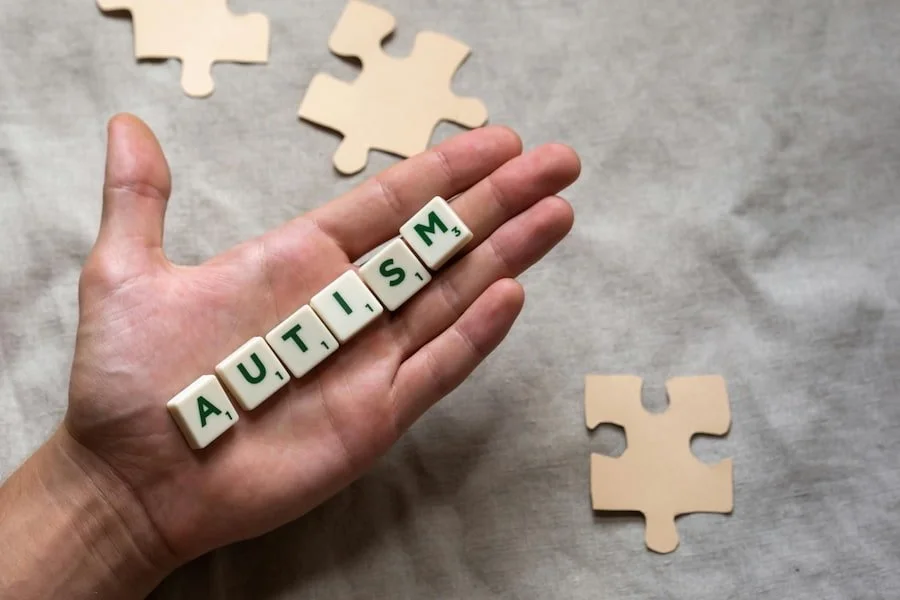
Autism Testing
in Boulder, CO
Do You Suspect Autism Is At The Heart Of Your Struggles—Or Those Of Someone You Love?
Have people told you that you may be on the autism spectrum? Are you considering autism testing because your symptoms match up with what you’ve seen online, but you want to make sure it’s not ADHD or something else entirely?
Alternatively, maybe you’re the parent of a child whose teachers have suggested you see a professional to get some clarity on what may be behind some of their behaviors.
Perhaps you’ve had your own suspicions, and now that your child is getting older, you’re looking for a formal diagnosis, education about that diagnosis, and treatment options moving forward.
People Seek Out Autism Testing For Good Reasons
Whether you’re an adult struggling with ASD or the parent of a child on the spectrum, there are many ways in which autism can make life more difficult. You or your child may have trouble:
Maintaining conversations, engaging in small talk, or understanding sarcasm and idioms.
Making and keeping friendships due to social misunderstandings.
Being in crowded, noisy environments.
Adapting to new or unpredictable situations or having a hard time with change.
Organization, planning, staying on task, and time management.
It could be that you’re overly sensitive to lights, loud sounds, specific textures, or smells. You might have a strong preference for routines, and when these routines are disrupted, it causes you anxiety or distress. Perhaps you have a child who gets distressed by sensory input, leading to meltdowns or shutdowns.
All of these challenges can make life much more difficult, which is why autism testing can be such a great resource. Completing an autism assessment means getting definitive answers, and with this, being able to access support that will allow you to better understand yourself or your child, and help you thrive.
Have Any Questions? Send Me A Message!
ASD Can Be A Struggle For Children And Adults Alike
According to a 2020 survey by the Centers for Disease Control, approximately 1 in 31 children and 1 in 45 adults in the U.S. have been diagnosed with autism spectrum disorder.* In 2025, with increased rates of detection, we can surmise that these numbers are even higher.
Without a diagnosis, individuals may struggle to understand why they find certain aspects of life challenging. Many autistic individuals are diagnosed with ADHD, OCD, anxiety, learning disabilities, etc., but it has been missed that autism is the tie binding all of these diagnoses together: This often prevents people from being able to access the care they really need.
What Are The Benefits Of An Autism Spectrum Disorder Test?
An autism spectrum evaluation offers support for families: Parents and caregivers will better understand how to support their child’s development. The feedback will also help family members connect with support groups and other external resources and accommodations, such as an Individualized Education Program (IEP) for students.
ASD testing allows people to better understand and advocate for themselves or their loved one. For adults, a diagnosis can explain lifelong struggles and validate their experiences. The diagnosis can empower people with a newfound self-awareness.
Some people may choose to engage in neurodiverse affirming therapy, where the goals could include addressing challenges related to social interactions, communication, and behaviors—or even improving daily living skills, allowing them to navigate society’s neurotypical landscape with greater ease and success.
Why Autism Testing Is Such A Powerful Resource
Without a definitive autism diagnosis, many people on the spectrum can feel frustrated with themselves and confused as to why they seem to struggle with things that those around them seem to do with ease. Without a diagnosis, it is likely that there will be:
Misunderstood behaviors.
Difficulty making friends and creating social connections.
Negative self-concepts: feelings of low self-worth, loneliness, and isolation.
Problems navigating work environments and school systems.
A lack of access to crucial resources and accommodations.
An ASD screening, however, eliminates the uncertainty and confusion and can give insights you can use to improve how you move through this world.
Early Intervention Through Autism Testing Improves Outcomes
For children, getting an accurate diagnosis allows for early intervention, which can help with developing communication, as well as social and behavioral skills. Speech therapy, occupational therapy, and behavioral interventions are more effective when started early.
For both children and adults, many government and community programs require a diagnosis to provide assistance. That means a formal autism diagnosis can open doors to state funding, respite care, special education programs, therapy services, and accommodations in school or work environments.
The Diagnostic Tools I Utilize During An Autism Spectrum Assessment
I primarily use two tools for conducting autism tests for adults and children:
DSM-5: The Diagnostic and Statistical Manual of Mental Disorders, 5th Edition, provides standardized criteria for diagnosing autism spectrum disorder (ASD), which we will review together in detail.
ADOS-2: Autism Diagnostic Evaluation Schedule. I offer ADOS testing to individuals from 12 months old through adulthood. This test is considered the gold standard for diagnosing autism. It is a semi-structured, standardized assessment of communication, social skills, play (in children), and restrictive and/or repetitive behaviors.
What Happens During An ADOS-2 Assessment?
Structured and Unstructured Activities
I start the ASD assessment by using social interactions, communication tasks, and play-based activities to observe behavior. Some examples of the exercises I implement include:
Free play with toys
Making up a story with a picture book
Conversations or discussions
Asking the child/adult about daily experiences or emotions
Looking at the individual’s ability to respond to social cues, eye contact, and use of gestures
Observation of Key Behaviors
Social communication (eye contact, conversation skills)
Repetitive behaviors and restricted interests (fixation on certain objects, hand flapping, talking about only one topic and not being able to shift gears)
Imaginative play (for younger children)
Ability to adapt to social situations
Scoring and Interpretation
After the session, I score the individual's responses and behaviors based on standardized criteria. These scores are used to determine if the person exhibits behaviors consistent with ASD.
Autism Testing Can Be A Life-Changing Experience
By obtaining an accurate diagnosis, individuals and families can begin to access appropriate intervention services, obtain individualized behavioral and educational programs, and determine patterns of strengths and weaknesses at the person’s current developmental level. The primary evidence-based treatment for autism is neurodiversity-affirming ABA (Applied Behavioral Analysis) therapy.
ABA therapy is difficult, if not impossible, to receive without first getting a formal autism diagnosis, which is another reason why an ASD evaluation is so critical. With the right support, insight, tools, and education around an autism diagnosis, people can finally understand what they are going through and gain access to resources and accommodations that can truly change their lives.
Perhaps You Still Have Questions About Autism Evaluations…
-
With kids, parents are often present in the room, especially if the children are very young or nonverbal. However, parents are typically asked to observe rather than participate, unless I need their assistance in helping their kiddo feel more comfortable during the testing.
For older children and young adults, the assessment for autism spectrum disorder is usually conducted without the parent in the room to ensure unbiased observation of social communication and behavior. Parents may wait outside and provide input separately during the interview.
-
Yes, please, and here’s why:
Accurate Representation of Daily Functioning – If the child usually takes stimulant medication for ADHD, taking it before the assessment allows me to see their behavior in a typical setting.
Improved Attention and Regulation – Medication can help a child stay engaged and follow instructions, which may allow me to get a clearer picture of their social communication skills, rather than focusing on their attention-related challenges.
-
Prior to the test, I typically spend 1.5 hours interviewing the individual and reviewing the DSM-5 criteria for autism together before moving on to the evaluation, which takes another 1 to 1.5 hours to complete. As this can be a lot for someone to do all at once, we can always break the testing period into two separate appointments, which may feel less overwhelming.
Clarity Is Only A Few Clicks Away
If you’re ready to get some definitive answers and receive the support you deserve, I encourage you to email me or call/text me at (720) 515-2404 to set up your or your child’s first appointment. In some cases, I offer a brief consultation to field specific questions or concerns prior to the first appointment.
I provide Autism Spectrum Disorder Testing for clients throughout Boulder, the Denver Metro area, and the state of Colorado.
* https://www.autismspeaks.org/autism-statistics-asd



